In our current 2019-2024 MRC Centre PhD cohort, we host eight PhD students, while we have around sixty affiliated PhD students at any one time. Our PhD students working on a wide variety of research topics across the Centre programmes and themes. We recently asked our students what they like about the MRC Centre Studentship, what made them choose the Centre for their studies, and about their activities and achievements.
Click the links below to find more about them.
Meet our PhD students
Joudi Altaleb

An MSc in Advanced Mechanical Engineering at Imperial.
Why did you choose the Centre and how did involvement with the Centre contribute to your project?
The MRC Centre for Environment and Health resonates with my values, as it is dedicated to addressing complex environmental challenges and translating research into practical solutions for public health. The collaborative professional environment of the centre is an ideal place for me to further develop my skills. I deeply appreciate impactful works such as the London Hybrid Exposure Model, which has influenced policies like The Ultra Low Emission Zone, directly contributing to the prevention of illnesses such as cancer, lung disease, dementia, and asthma.What do you enjoy most about your day to day work and the people you work with?
I enjoy the problem-solving aspect of my day-to-day work, as it keeps me engaged and constantly learning. The people I work with are supportive and innovative, fostering a collaborative environment where everyone’s ideas are valued. This combination makes each day fulfilling and motivates me to perform at my best.What are your plans after graduating?
Inspired by the MRC Centre for Environment and Health, my career aspiration is to pursue an academic research position focusing on the effects of air pollution on biological structures.What opportunities have you benefitted from outside your PhD?
ITTP Cambridge summer school and joining researchers society as a social sec.Do you have any tips for future MRC Centre Studentship applicants?
Research the MRC Centre thoroughly, tailor your application to align with its goals, highlight your relevant experience, and demonstrate your passion for the field.Shuhui Li

What were you doing before joining the Centre?
I completed my bachelor’s degree at Public Health in Peking University, followed by MSc degree at Epidemiology at Imperial. Also, I worked as a research assistant in the George Institute for Global Health before joining the Centre.
Why did you choose the Centre and how did involvement with the Centre contribute to your project?
I chose the Centre because it aligned with my interests in environmental health, biostatistics and multidisciplinary research. The Centre offers me opportunities to learn and work on environmental epidemiology, biostatistics, and machine learning, combining both theoretical and fieldwork aspects. Additionally, the Centre’s active collaboration with leading scientists provides numerous opportunities to participate in exciting projects, significantly contributing to the advancement of my research.
What do you enjoy most about your day to day work and the people you work with?
What I enjoy most about my day-to-day work is the opportunity to collaborate with my supervisors and experts from diverse research areas. It is an honour to learn from such knowledgeable and supportive individuals. Despite the daily challenges, the process is incredibly exciting. My colleagues also actively foster a positive and supportive environment, which greatly enhances the overall experience.
What are your plans after graduating?
My current focus is on completing my PhD project. After graduating, I plan to continue my research in environmental health and biostatics within academia.
What opportunities have you benefitted from outside your PhD?
I have benefitted from attending Imperial public events, where I networked with professionals. MRC and Imperial also provide many chances for internships and student jobs which allow me to apply my research in real-world settings and collaborate with colleagues and students who share similar interests.
Do you have any tips for future MRC Centre Studentship applicants?
Before applying for the studentship, identify your true interests to ensure they will sustain your motivation throughout the PhD process. It’s beneficial to contact potential supervisors to discuss possible projects and determine if they are a good fit for you. Stay healthy and maintain your confidence! Once you receive an offer and become a PhD student at the MRC Centre, take full advantage of the resources and opportunities provided by Imperial and the Centre, including classes, conferences, and training sessions.
Sonja Tang
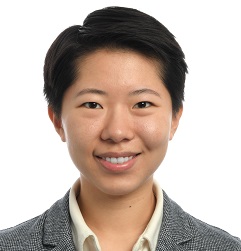
What were you doing before joining the Centre?
I helped ensure the smooth running of the first (pandemic-enforced) fully-remote delivery of Imperial’s MSc in Health Data Analytics and Machine Learning (HDA-ML) for the 2020/21 cohort. I co-supervised research projects and ran remote cohort-building activities. I also conducted epidemiological research as part of the SARS-CoV-2 REACT studies.
Why did you choose the Centre and how did involvement with the Centre contribute to your project?
I chose the Centre as I had already worked with many of the researchers at the Centre, such as Prof. Marc Chadeau (MSc HDA-ML course director), Prof. Paul Elliott (one of the REACT study directors), and Dr Verena Zuber, who supervised my master’s thesis in 2020. The research they and others at the Centre published was methodologically rigorous, novel, and relevant to improving public health. Furthermore, I was aware that many researchers at the Centre focus on developing new statistical and machine learning (ML) methods, the kind of research I was most interested in pursuing in my PhD.
What do you enjoy most about your day to day work and the people you work with?
I am very fortunate to work with supervisors who are not only experts in statistics, ML, and omics (genomics, proteomics, metabolomics…) research but also very responsive to my many questions! They also provide me with frequent constructive feedback and recommend methodologies to explore.
What are your plans after graduating?
My plans still need to be set, but I would like to continue conducting scientific research on improving human health.
What opportunities have you benefitted from outside your PhD?
I created and teach the optional “Introduction to Biomedical Science” module and act as a graduate teaching assistant on other modules of the MSc in HDA-ML, where I’ve been able to hone my teaching skills and have engaging discussions with students. I also co-created and teach the “Regresssions in R” course for the Imperial Graduate School, where I’ve been able to meet PhD students from across the College, which has been greatly enjoyable. I’ve also benefitted from presenting at several scientific conferences.
Do you have any tips for future MRC Centre Studentship applicants?
Before applying, try to schedule a meeting with prospective PIs to discuss potential projects and gauge if it’s the right kind of research for you. Once you’ve joined the Centre, get involved in the various lectures and showcases throughout the year to increase your awareness of the multiple streams of public health research here and share your work. And of course, since we’re not all work and no play, we also have many socials you can try to join!
Azaan Zaki
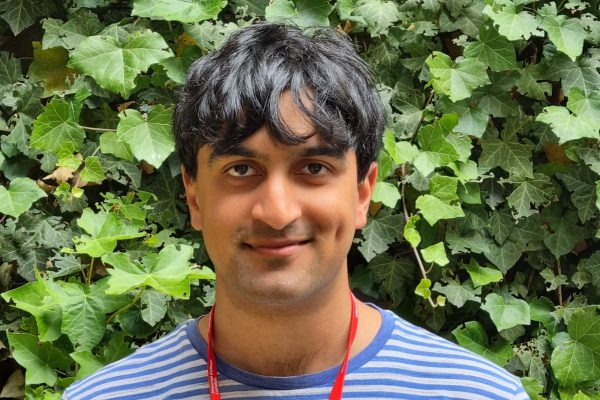
What were you doing before joining the Centre?
Before joining the centre, I completed my MSc in Molecular Genetics and Diagnostics at the University of Nottingham, where I also undertook my bachelors in Genetics.
Why did you choose the Centre and how did involvement with the Centre contribute to your project?
I researched the epigenetic mechanisms underlying aging in neurodegenerative pathology during my master’s and became excited about characterising the links between these mechanisms to environmental exposures. This lead me to the exceptional epidemiological research that was being conducted at the centre in air pollution, a huge risk factor for age related disease that affects everyone worldwide and the project offered me the chance to follow my passion by working with epigenetic clocks to assess the impacts of the environment on accelerated ageing.
What do you enjoy most about your day to day work and the people you work with?
I enjoy collaborating with passionate colleagues who share a common goal of advancing scientific knowledge and improving public health. In addition to that I really admire the nurturing environment created by the people that I work with, who have that teamwork ethos which I think maximises the quality of work that is being produced here.
What are your plans after graduating?
After graduating, my plans involve continuing to conduct further research investigating the interplay between epigenetics and environmental factors, which I hope will be applied to help develop novel strategies for mitigating the adverse effects of a environmental insults on ageing. This will allow us to better prolong our lifespan and delay age-related symptoms of disease.
What opportunities have you benefitted from outside your PhD?
Outside my PhD, I have had the opportunity to attend conferences and public engagement events, where I’ve met a variety of people, who share not only interests in my project but also outside of my project. People tend to like my blog at www.genenurture.com, where I am hoping to post not just my future research but collated research of other scientists that focuses on preventing disease instead of curing it by ‘nurturing our genome’.
Do you have any tips for future MRC Centre Studentship applicants?
My tips would be to emphasize your passion for scientific inquiry and showcase your ability to work well in a team. Make people understand your passion, and help them see what you see, it won’t be hard because people here are all working towards the same thing so you will find people who will be really interested in what you do and vice versa and this makes all the difference when it comes to working in a stimulating environment.
Meet our Past PhD students
Michael Hedges
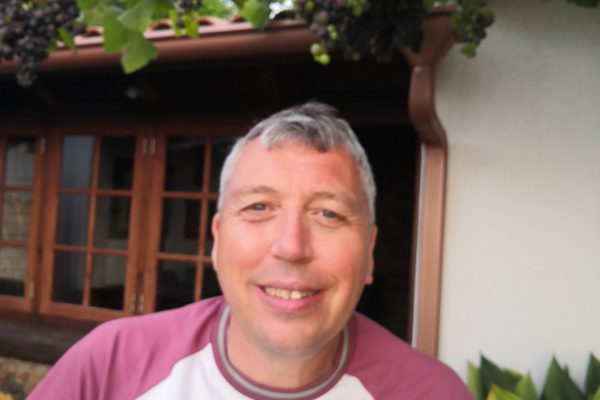
What were you doing before joining the Centre?
I worked as a London Taxi driver, having completed the famous ‘Knowledge of London’. Driving everyday on London’s polluted roads made me realise that action needed to be taken in tackling the dreadful effects that air pollution has on the health of professional drivers.
Why did you choose the Centre and how did involvement with the Centre contribute to your project?
I knew that obtaining a PhD Studentship at the MRC Centre would enable me to learn from world renowned experts providing me with a unique environment in which to undertake research that I am passionate about advancing. I wanted to change my career path to develop my research interests and being part of the MRC Centre has provided me that opportunity.
What do you enjoy most about your day to day work and the people you work with?
The studentship has provided me the chance to meet people and interact across a number of cross disciplinary areas and projects. Being a member of the MRC Centre has allowed me to regularly attend conferences and seminars and to be inspired by the incredible work that goes on in the Centre.
What are your plans after graduating?
At the moment I have no definite plans although I am enjoying this amazing experience and can see myself carrying on my research.
What opportunities have you benefitted from outside your PhD?
I have been able to obtain a network of a wide range of people from many different fields of research providing a new way in which to interact with people outside of my everyday experiences. I am a committee member of the Researchers Society, which offers a fun, social way to engage with fellow students and the MRC Centre.
Do you have any tips for future MRC Centre Studentship applicants?
Firstly, discuss your research project with your supervisor and ensure it is the project you want to undertake. Once you are at the Centre make use of all the opportunities that the MRC Centre offers. Attend the events that the Centre organises to network with people outside of your field and hear about the work of others, join the Researchers Society and get involved in every collaboration opportunity that becomes available. The MRC Centre provides a unique environment in which to learn and enjoy yourself and you will get the most out of it by being involved.
Khezia Asamoah
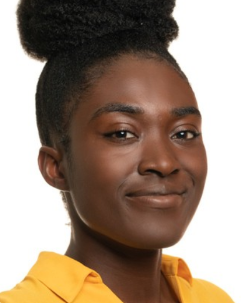
What were you doing before joining the Centre?
I completed my MSc degree from 2019 to 2020. Additionally, I was employed by a pharmaceutical company before then, where I contributed to research and development activities while concurrently working part-time as a pharmacist, having obtained my qualification in 2018.
Why did you choose the Centre and how did involvement with the Centre contribute to your project?
I chose the Centre because it perfectly aligned with my research aspirations for my PhD. The Centre’s focus on health, along with its practical applications in the field, resonated with my interests as a pharmacist. By becoming involved with the Centre, I gained the invaluable opportunity to collaborate and engage with leading scientists in the field, fostering an environment conducive to intellectual growth.
What do you enjoy most about your day to day work and the people you work with?
What I enjoy most about my work in the Department of Epidemiology and Biostatistics is the stimulating research environment and the exceptional individuals I collaborate with. Every day brings new challenges and discoveries. The collaborative nature and diverse expertise of my colleagues creates a supportive atmosphere, fostering innovative approaches and personal growth.
What are your plans after graduating?
After graduating, my plans are not set in stone. I believe that research is an exploratory journey, and I am excited to see where it will lead me.
What opportunities have you benefitted from outside your PhD?
Outside of my PhD, I have had the privilege of benefiting from diverse opportunities that have expanded my network and introduced me to various fields. Engaging in conferences, workshops, and interdisciplinary collaborations has allowed me to connect with professionals from different domains, broaden my research perspectives, and apply my skills to complex questions.
Do you have any tips for future MRC Centre Studentship applicants?
Be creative in crafting your research proposal, addressing unique gaps in the field. Make the most of the studentship by learning new skills and embracing interdisciplinary collaborations. Take advantage of the available resources and training programs to enhance your expertise; and showcase your work.
Emily Muller
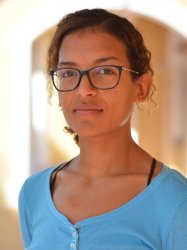
What were you doing before joining the Centre?
Before joining the centre I was working as a Research Assistant in the Department of EBS.
Why did you choose the Centre and how did involvement with the Centre contribute to your project?
I got to learn about a lot of the research going on at the Centre through my previous role and found it really fascinating, I found a medium-sized group of people working on Machine Learning applications which I wanted to be part of. With this specialised group, there is a lot of exchange, from methods, to conferences to the pitfalls of training!
What do you enjoy most about your day to day work and the people you work with?
I enjoy tinkering around with structures and thinking up experiments. I like to be creative with my work and working with such a diverse range of peers really helps with that. There is so much variations in our ideas – and that can be a lot of fun.
What are your plans after graduating?
I have no idea what my plans are after graduating.
What opportunities have you benefitted from outside your PhD?
Opportunities within the Centre outside my PhD have to be fun and creative chats with colleagues and friends.
Do you have any tips for future MRC Centre Studentship applicants?
My tips would be to find something in your work which you really truly get enjoyment from, it doesn’t have to be the entire field, it doesn’t have to be the exact model, but if you know that there are some things which you really do love then that will help so much. For me, I love GIS mapping and algorithms – all of ’em.
Barbara Bodinier
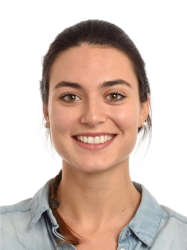
What were you doing before joining the Centre?
I spent a year working as a Research Assistant with my PhD supervisor before finishing my MSc in 2016-2017. After finishing my MSc in late 2018, I got a position with my PhD supervisor to work as a Teaching Fellow for a year. I was awarded the PhD studentship in 2019 and could start my PhD in late 2019.
Why did you choose the Centre and how did involvement with the Centre contribute to your project?
During my time as Research Assistant and Teaching Fellow at Imperial College, I became familiar with the research conducted at the MRC Centre and was involved in some of their projects (on the Exposome). The research conducted within the Centre contributes both to methodological developments and applications in the field of Health and Environment, which was perfectly in line with what I wanted to do for my PhD. It also constitutes a great opportunity to interact with leading scientists in the field and develop a broader culture by getting to know more about other projects.
What do you enjoy most about your day to day work and the people you work with?
What I enjoy the most is constantly having new challenges, not a single day is the same. I have already learnt a lot by interacting with other researchers, seeing how they would go about a problem or what they take out of the statistical analyses is very instructive.
What are your plans after graduating?
I would like to stay in academia after my PhD, I would probably look for a post-doctoral position in the field of Biostatistics or Health Data Analytics in general.
What opportunities have you benefitted from outside your PhD?
I have been doing some teaching for the MSc Health Data Analytics and Machine Learning at Imperial College, which helped me a lot in developing my presentation skills and yielded very interesting discussions with students from different backgrounds. I have also been involved in other projects outside of my PhD (IDlung, Expanse), which is a great opportunity to work with collaborators from other institutes.
Do you have any tips for future MRC Centre Studentship applicants?
I would recommend taking advantage of the extra layer of community that arises from involvement in the Centre. In addition to the interactions in the everyday research environment with supervisors and colleagues, attending the events (socials, courses and seminars) organised by the Centre is a great opportunity to meet other researchers and engage in fruitful discussions.
Brendan Bos
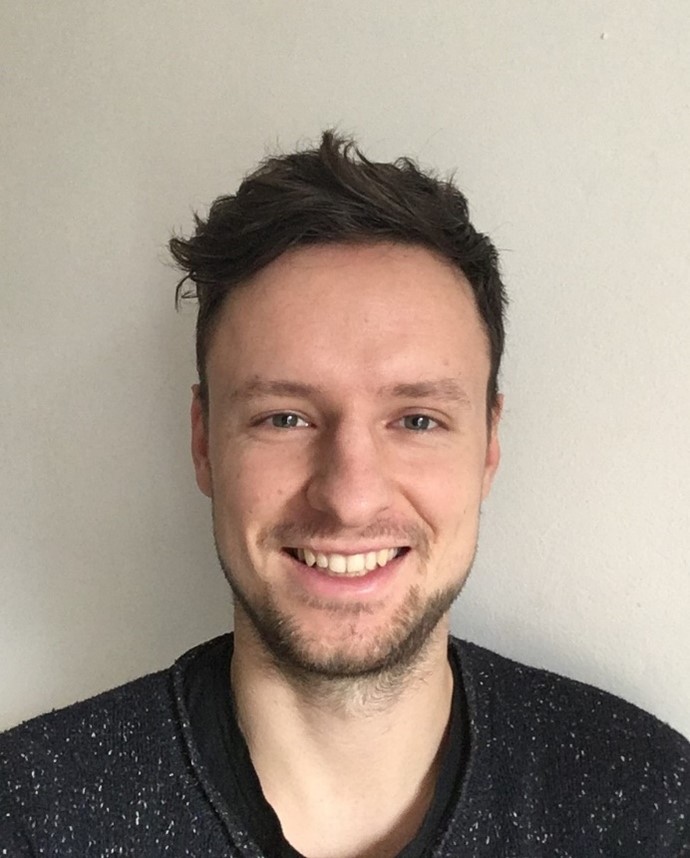
What were you doing before joining the Centre?
I was a Research Assistant in Air Pollution Exposure in the Environmental Research Group at King’s College and Imperial College. Before this I completed my Master’s degree at KCL.
Why did you choose the Centre and how did involvement with the Centre contribute to your project?
I worked with the Centre previously and really enjoyed it. I had come to know lots of people and everyone was friendly and encouraging, it was too good an opportunity to pass up. The Centre now provides me with the contacts and expertise required to complete my project.
What do you enjoy most about your day to day work and the people you work with?
Most of my enjoyment comes from day to day interaction with my colleagues and fellow students, it gives me a lot of energy and inspiration. Being able to spend the rest of my time learning new skills and contributing to research is also very satisfying.
What are your plans after graduating?
That depends on where my project takes me. If there is a natural continuation leading to a Research Fellowship or Research Associate position, I would choose that, but if that doesn’t happen I’ll have to see what other opportunities come up.
What opportunities have you benefitted from outside your PhD?
I used to be the head of a committee at a student union during my bachelor’s degree which was a great learning experience. I was also very fortunate to have my master’s degree lead to a Research Assistant position at KCL.
Do you have any tips for future MRC Centre Studentship applicants?
It’s a good idea to learn as much as you can about the Centre before you apply and maybe even reach out to a few members so they can get to know you and you can ask questions. Be confident when presenting yourself – you are more capable than you think you are!
Rosemary Chamberlain

What were you doing before joining the Centre?
I was working as a biostatistician at the University of Dundee, having completed a MPH degree at the University of Edinburgh in 2019.
Why did you choose the Centre and how did involvement with the Centre contribute to your project?
The Centre is conducting some of the most advanced air pollution epidemiological research in the UK and globally, so it was the ideal place to pursue my career in this area. While I have only just started my PhD, I am looking forward to working with and learning from the many world-renowned experts at the Centre.
What do you enjoy most about your day to day work and the people you work with?
I’m currently really enjoying the chance to immerse myself in the literature and taking the time to plan my project. I’m also enjoying interacting with and learning from scientists working on a wide range of research topics.
What are your plans after graduating?
At the moment my focus is on my PhD. After graduating I hope to continue working in environmental epidemiology within academia, with a particular focus on research that is directly policy-relevant.
What opportunities have you benefitted from outside your PhD?
I’m looking forward to getting involved in the Researchers’ Society. I’m also hoping to make the most of the opportunities for public engagement, to communicate with the wider public about the exciting research being conducted at the Centre.
Do you have any tips for future MRC Centre Studentship applicants?
Focus on communicating why you are interested in the research topic you are applying for. Being able to communicate the importance of your research area is critical.


